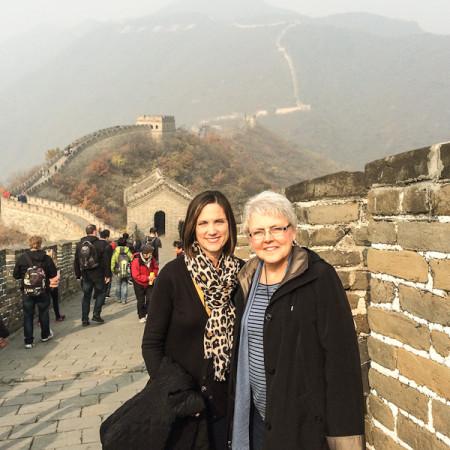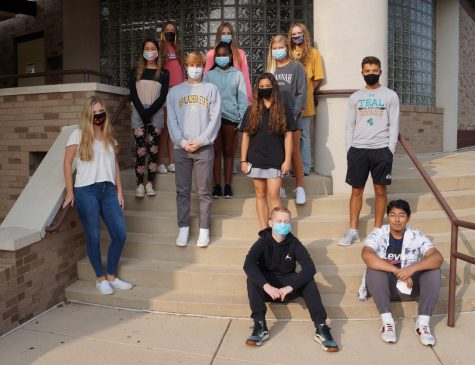Ball, Zurkowski visit China to meet with potential students

Photo Courtesy Christine Zurkowski
Principal Madelyn Ball and English department chair Christine Zurkowski pose on the Great Wall of China in Beijing. They went to China to promote JC to prospective international students.
Principal Madelyn Ball and English department chair Christine Zurkowski visited China to interview potential students who are interested in applying to JC for next year and advance the potential partnerships with other schools in China. Their visit was from Oct. 23 to Nov. 5.
Zurkowski was chosen to accompany Ball on the trip because of her leadership role as the English department chair.
“When Mrs. Ball choose me, I asked her why and she said that Mr. O’Hara was looking for a teacher to have the experience of going to China since we teach the students in our classes,” Zurkowski said.
“She has taught international students and has an appreciation for the difficulties these students encounter in developing their academic English,” Ball said. “She was extremely helpful when we interviewed potential students in determining whether or not their English skills were sufficient for studying at John Carroll.”
“[The interviews with potential students] were held at high school fairs in Beijing, Qingdao, Nanjing, Yangshou, Chengdu, and Shanghai. We also visited several high schools that are interested in developing a partnership with John Carroll,” Ball said.
While there, they also had an opportunity to meet with the parents of some of JC’s current international students. “We met with [junior] Gloria Qiao’s parents, [sophomore] Gavin Ding’s parents, [sophomore] Lily Liu’s parents, and [senior] Harry Huang’s father. Gloria’s parents were kind enough to drive us to the airport on our last day,” Ball said.
During the majority of their trip, they spent their time at high school fairs and visiting high schools. “Our work schedule left little time for sightseeing,” Ball said. “In our free time we were able to visit the Forbidden City in Beijing, and we went to the Great Wall of China. These were fascinating things to see.”
According to Ball, the most difficult part of the trip was the “constant traveling from city to city.” “The traffic is extremely heavy in China, which makes it difficult to get to the airport or train station on time,” she said.
Zurkowski agreed that her days were long and demanding. After an 11 hour flight to China, they also had to take two to three hour flights between cities because the country is so big.
“It was long days interviewing students, meeting parents, and visiting high schools with over 6,000 students. However, I was not as prepared as I could have been for the long days of work while over there,” Zurkowski said.
Additionally, they also got to experience the cuisine of China’s “elaborate meals,” according to Ball. She said, “Mrs. Zurkowski and I became quite adept at using chop sticks. Some of the foods we ate were very different than what we eat in the United States. I even tried to eat a chicken foot.”
“For me, it was a culture shock to see the difference between China and eastern culture versus US culture and western culture specifically related to food, traffic, crowds of people, the largeness of the cities, and the bathrooms,” Zurkowski said. “I missed good old Harford County and clean air. I missed open space.”
However, the food was not the only aspect that was different in China compared to the United States. “The education system in China is very different from the United States,” Ball said. For the Chinese students, school starts at 8 a.m. and ends at 6 p.m. After school, they have four to six hours of homework every night.
“It was amazing to see 50 students in a classroom no larger than our classrooms,” Ball said. According to her, students would sit quietly and read or work on writing assignments after lectures. They also did not change classes. Instead, the teachers would rotate classes.
“While we were visiting one school, loud music was played about once each hour,” Ball said. “During the music, students had an opportunity to stand and stretch.”
However, the biggest adjustment for Ball was the time change, since China is 12 hours ahead of the United States. Additionally, Ball found it “extremely difficult being in a country wherein [she] was not able to understand the language.”
Ball said, “I truly admire our Chinese students for how well they speak English as well as Chinese.”
Sydney Setree is the Print Chief for The Patriot and jcpatriot.com.










